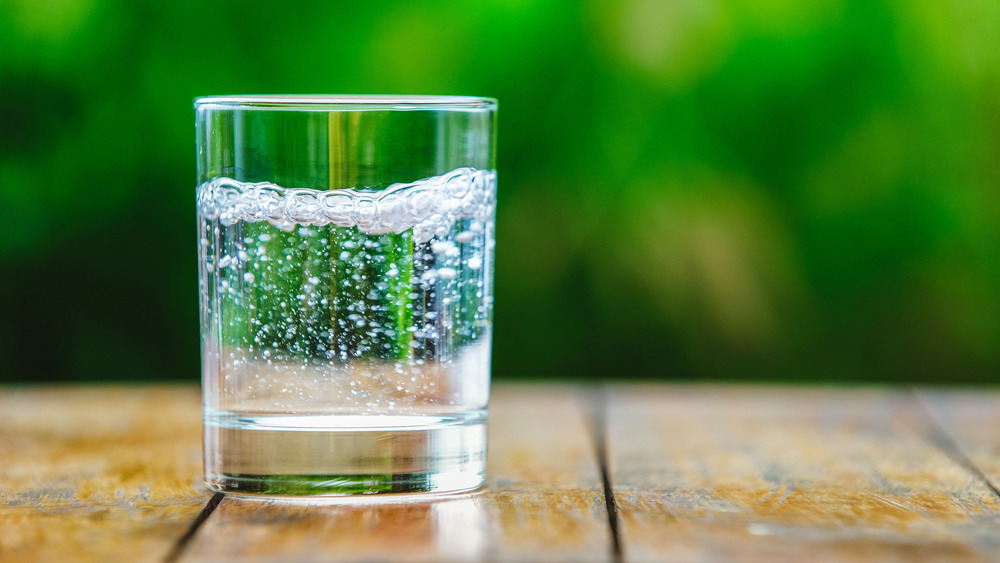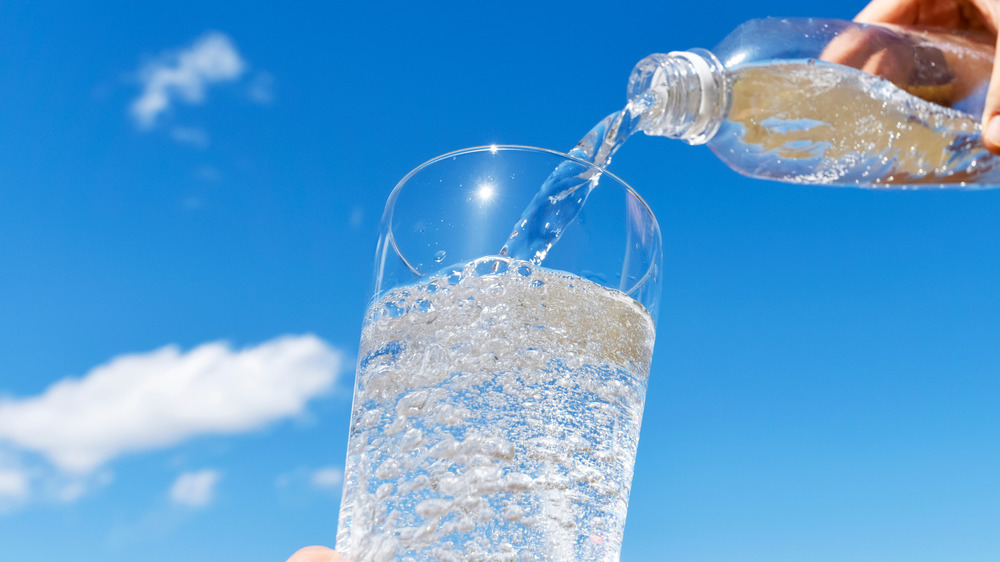The Real Health Benefits Of Sparkling Water
It may have a fancy-sounding name, but sparkling water is actually just carbonated water. Sparkling water has become popular as an alternative to soda and other sugary drinks like lemonade or sweetened tea. That's because sweetened beverages are associated with higher risks of heart disease, type two diabetes, and obesity. Even diet sodas aren't great for you, according to WebMD.
A 2015 study published in the American Journal of Clinical Nutrition found that sparkling water is just as hydrating as flat water. Researchers studied the effects of 13 different drinks on hydration. Not drinking enough water can have side effects, so sparkling water can amp up your hydration. Other health benefits include helping with digestion, by increasing feelings of fullness and relieving constipation.
Are there any drawbacks to gulping down the fizzy beverage? As WebMD reports, previous studies associated a higher risk of bone fractures with carbonated drinks, but a new study found that it was minor and only happened with caffeinated beverages. Since sparkling water isn't caffeinated (make sure you're checking the labels), it wouldn't have this effect.
However, there is evidence that sparkling water may be bad for your teeth because it has a lower pH than flat water, making it more acidic. That acidity can erode tooth enamel. In fact, it has about the same pH as orange juice. If you're worried about your teeth but still want to enjoy your bubbly water, you can. Have a glass with a meal, sip with a straw, and brush your teeth afterward.
Don't confuse sparkling water with other carbonated drinks
Sparkling water shouldn't be confused with club soda, tonic water, or sparkling mineral water. While they're all different types of carbonated water, club soda, or soda water, has added sodium and potassium.
Tonic water contains a small amount of quinine, which gives it a slightly bitter taste. It also commonly has sugar or high fructose corn syrup. Tonic water used to have more quinine because it was used to help prevent malaria (via Healthline).
Sparkling mineral water comes from a spring where the carbonation is naturally occurring. It contains calcium, magnesium, and sodium. The amounts of minerals in the water vary depending on the source. The FDA requires anything labeled as mineral water to have 250 parts per million of minerals and trace elements from the spring source where it was bottled.
Sparkling water or seltzer water is the simplest of them all. It's carbonated water with no added minerals, but it might have some flavoring added to it. A couple of brand examples of sparkling water include Bubly and La Crioux (via Healthline).


